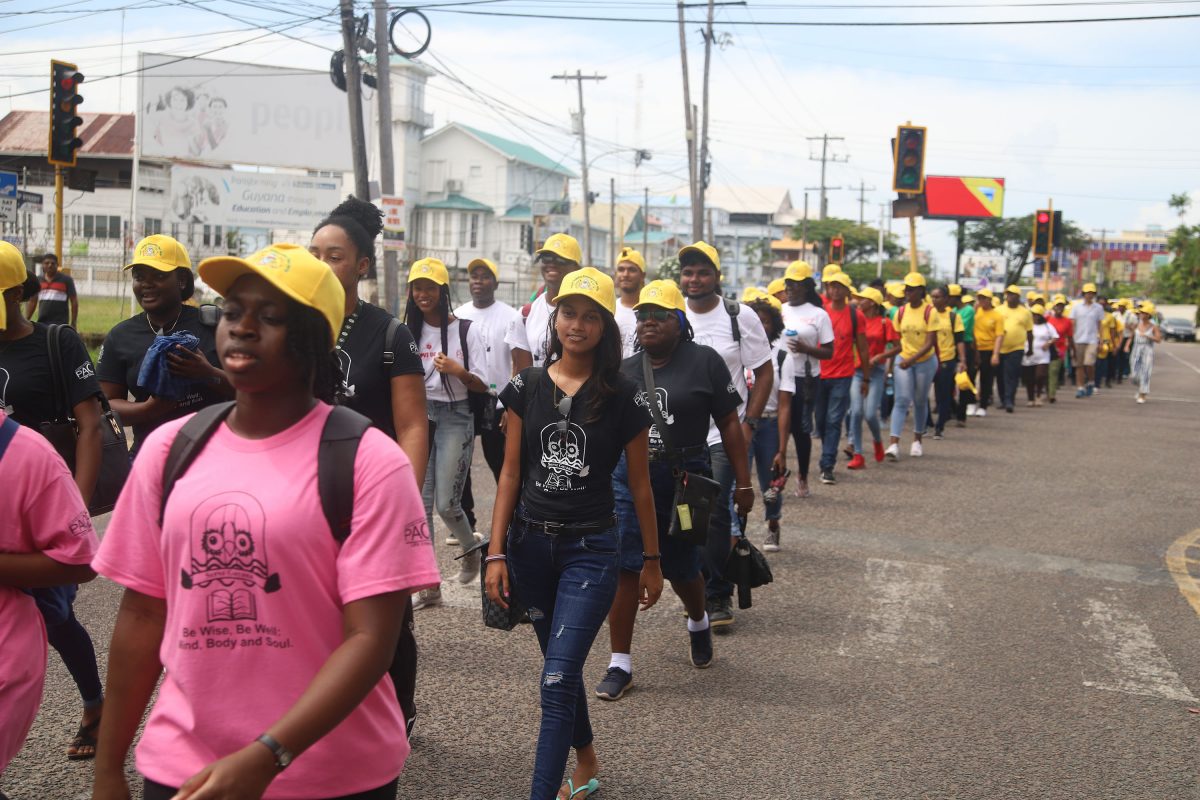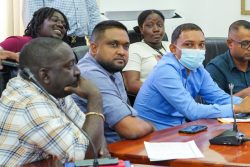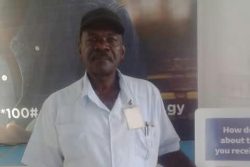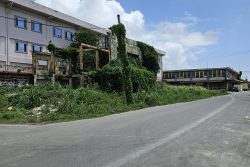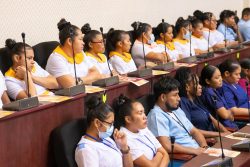Hundreds of persons converged at the Mental Health Institute on Quamina Street yesterday to participate in an awareness walk, which was hosted by the Institute in observance of World Suicide Prevention Day.
Students from secondary schools across the region, including Queen’s College, and students from the University of Guyana along with persons from the Mental Health Institute, Georgetown Public Hospi-tal, Ministry of Public Health and other non-governmental organisations participated in the march, which began at Quamina Street and ended at the National Cultural Centre on Homestretch Avenue, D’Urban Park, in George-town. “Life is precious, we should live it,” the participants chanted during the march.
This year’s World Suicide Prevention Day theme is “Working together to prevent suicide.” Director of the Mental Health Unit, Dr Util Richmond-Thomas stated that the awareness march is just one of the ways they are tackling suicide, which is a major problem not only for Guyana but globally.
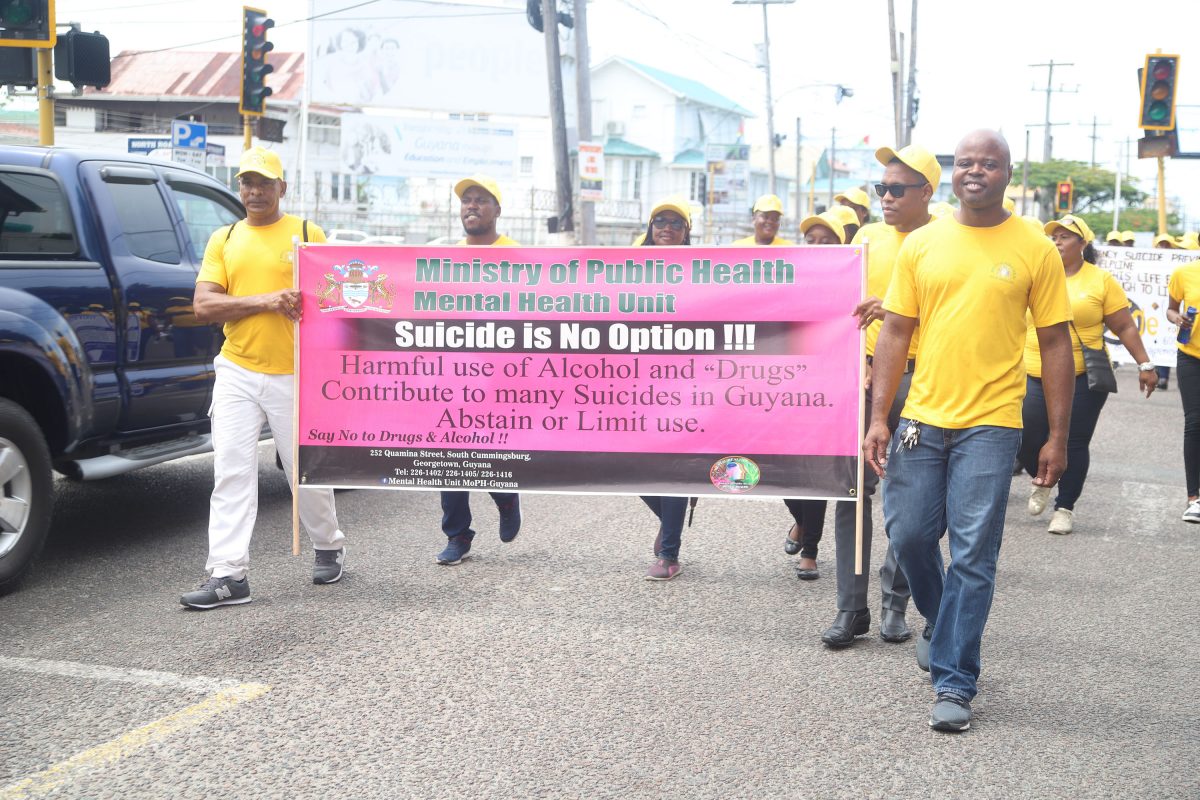
She further stated, since the commissioning of the Mental Health Unit in 2016, they have been doing and will continue to do their best as it relates to suicide prevention. She disclosed that the suicide rate has decreased since a report by the World Health Organisation in 2014 revealed that Guyana’s suicide rate was 44.4 suicide per 100,000 deaths, which was the highest suicide rate in the world for that year. She said that in 2017 the suicide rate dropped
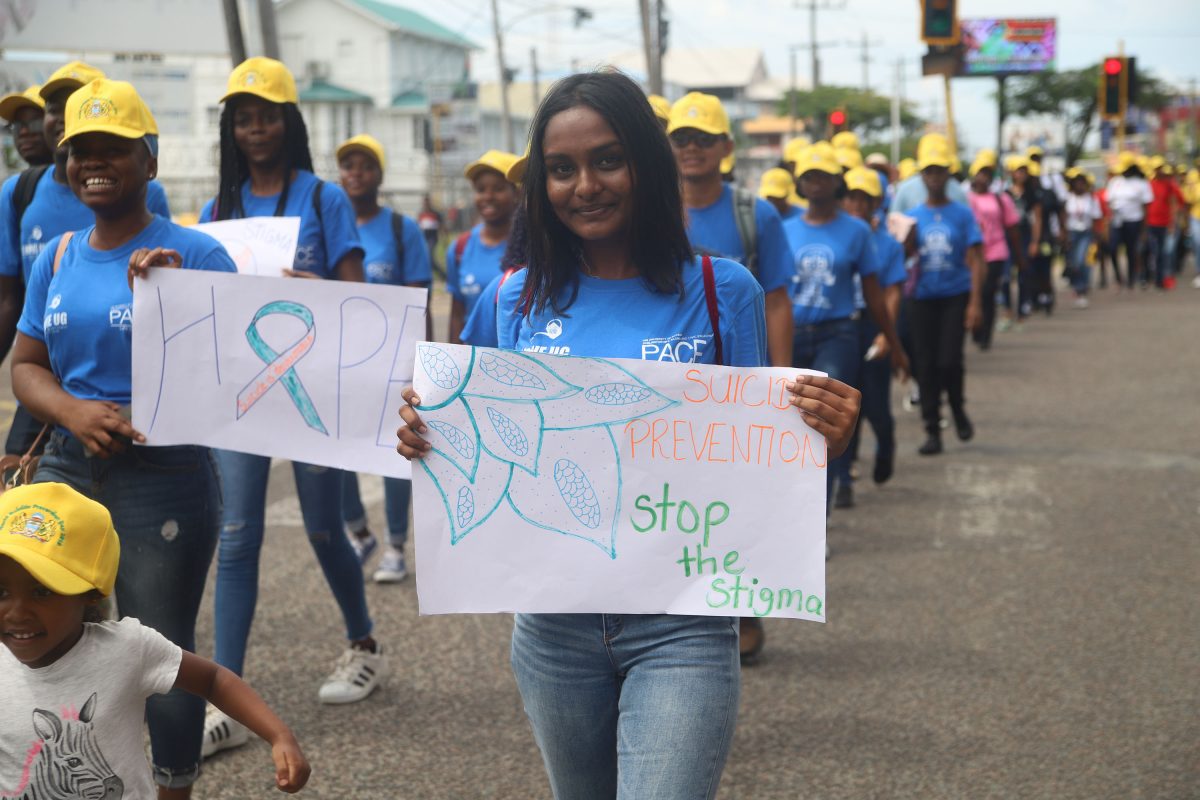
to 24.63 and in 2018 it dropped further to 18.8. “We are heading in the right direction but every life lost is too much, even one, so the work is by no means finished,” she declared.
In addition, she disclosed that health care workers and doctors are being trained every Monday in mental health issues, at the institute. They are trained on how to manage patients with mental health conditions like depression, among others.
She advises that if anyone notices their relatives or loved-ones showing signs of depression, suicide or self-harm, they should take the person to the nearest health centre or even to a hospital. She said that personnel who can “adequately” take care of persons suffering from mental illness are stationed at all health centres across the region.
Richmond-Thomas also emphasised that she supports the decriminalisation of suicide, which is recognised as a mental health condition and disorder. “It is described and well documented in medical textbooks as such so we cannot criminalise something like that,” she said. However, she noted that persons are very careless when it comes to the storage and sale of pesticides and organics phosphates, substances which are used to commit suicides. Finally she stated that the police should be doing more as it relates to investigations of suicides and they should ensure that acquisition, storage and sale of pesticides coincide with the law.
